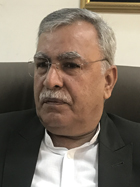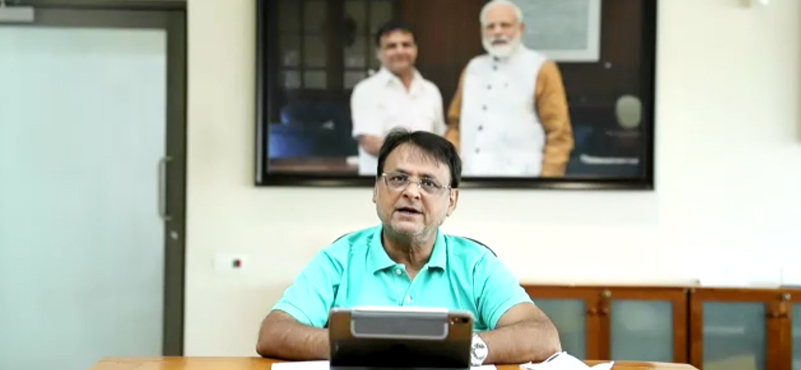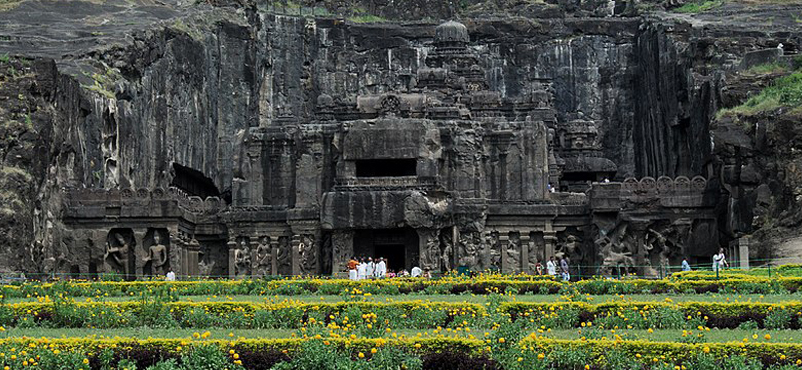Despite the underlying fear that some of the South East Asian countries could be posing a threat to Lakshadweep’s standing in the region, Farooq Khan, Administrator of the U.T. remains positive that the unique tourist attractions and tourism products of the islands will continue to positively impact the tourism sector and footfalls. Indicating that 2017 is set to be one of the most important years for tourism, he talked about the impact of the tourism sector on the U.T, apart from opening up on the challenges ahead. Excerpts of the interview follows:
 How critical is tourism for your economy? What is its stake in overall growth and development of the UT? What is its stake in creating more employment?
How critical is tourism for your economy? What is its stake in overall growth and development of the UT? What is its stake in creating more employment?
Lakshadweep tourism as I look at it is not only important for the local population of the island but also plays a vital role in generating foreign exchange for the country, because Lakshadweep is not a regular kind of a tourist destination but a niche one. People who are interested in a specific kind of activity and are ready to spend good money are the ones who generally get attracted to Lakshadweep, whether it be scuba diving enthusiasts or adventure fishing enthusiasts. These are two activities which we are trying to publicise in a manner where they would attract high-end tourists. We are not looking at high volumes because these are very small sensitive eco-systems and we do not want to by any means disturb the same. The islands are very pristine and thankfully these small little jewels in the Arabian Sea have been untouched by any kind of pollution or disturbance by human activities. So, we are looking to improve upon these but at the same time preserve them as well.
But at some point, you must be looking to increase traffic as that is something that cannot be limited?
There are several things involved. We are definitely looking to increase traffic from what it is right now but we are specifically looking at tourists who want to buy exclusive experiences. For example, if you have a look at the packages that Maldives tourism offers, they are very high compared to even say Australian tour packages and yet Maldives has huge tourist footfall. We are not looking to replicate the Maldives model but are looking to learn from it as well as other such models all over the world. An island can take only a limited number of people as there are a lot of issues involved like drinking and bathing water, waste disposal etc. all of which come in to play. Only concentrating on increasing footfall for monetary gains would probably, at the end of the day, destroy the ecology and eventually lead to the downfall of the tourism sector. We must keep the balance in mind and work on a case to case basis. These are different islands which vary in size and have different topography. Each island must be presented and preserved on one hand and then managed in a manner that it retains its uniqueness.
There are several products in the vicinity that seem to be adding to your competition in attracting footfalls, especially among the international inbound. How are you countering that?
We at Lakshadweep have some special features that are unique to the area. There are tourist spots where one can go for scuba diving only and there are tourist spots where one can go and only do adventure activities. Lakshadweep is a destination where all these activities can be done simultaneously and the activities are of the highest quality. We have the world’s most attractive coral reefs. The sheer variety of fish in those reefs is hard to explain and must be seen to be believed. We have a huge maritime zone, in which all these activities are immensely famous among tourists from several European countries like France and Sweden and yet the Indian population remains relatively ignorant of the same. We probably missed out on identifying this issue at some point of time but not anymore. These are activities which do not impact the eco-system. We are promoting our product in a very short and slow manner as a misstep today might end up being disastrous to the bigger scheme of things. We are very cautious about how tourists are transported and accommodated.
Would you say, Lakshadweep is a year-long tourist destination or a seasonal one?
We look at Lakshadweep as an eight-month tourism destination from around September to May. The scope of activities becomes a little restrained during monsoons as it tends to be on the heavier side and so it is not the most comfortable period for tourists but surprisingly it has been observed that tourist in-flow keeps occurring even during this time period.
What is the positioning that you are seeking to acquire as a destination? What about tapping the MICE Segment?
Like I mentioned, if it were to be explained in one line, Lakshadweep is a ‘high-end, low volume’ tourist destination. When it comes to the MICE segment that is one area which we are working on. Frankly speaking, we are presently unequipped to tackle this segment. But we are looking to incorporate the segment in the very near future. We want to promote Lakshadweep as a marriage tourism destination as well as look in to the other aspects of the MICE segment.
Air connectivity to Lakshadweep is still restricted, with only Air India plying to the islands. Are you in talks with other private players to boost the air connect of UT with the rest of the country?
Airline connectivity has seen vast improvement of late. I would go to the extent of saying that earlier it was really bad where we had 42 seater ATRs which would carry around 26-27 passengers in a single trip because of technical constraints. I would like to thankfully acknowledge that due to the Ministry of Civil Aviation and the honourable minister, now we have a new 72 seater ATR which can carry around 56-58 passengers daily. We are trying to impress upon the ministry to make it twice in a day during the peak season. We are also looking in to the possibility of allowing some sea-plane operators to operate there.
What are some key challenges in promoting the UT? How are you addressing them?
2017 is probably going to be the most important year for the tourism future of the island. We have some secrets up our sleeves which we will be sharing with you in due time.




































